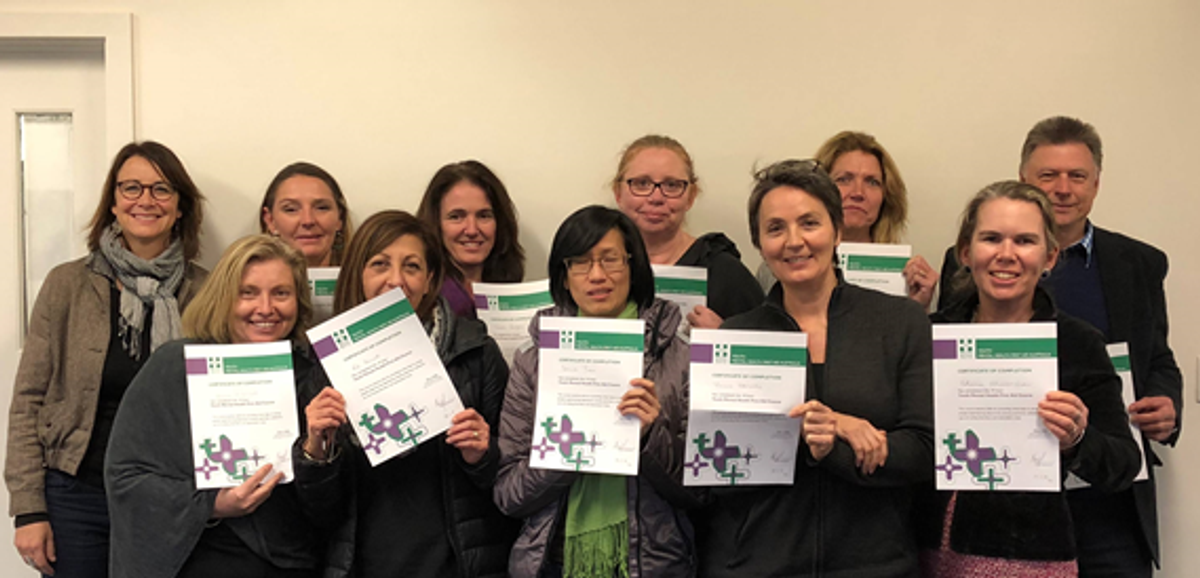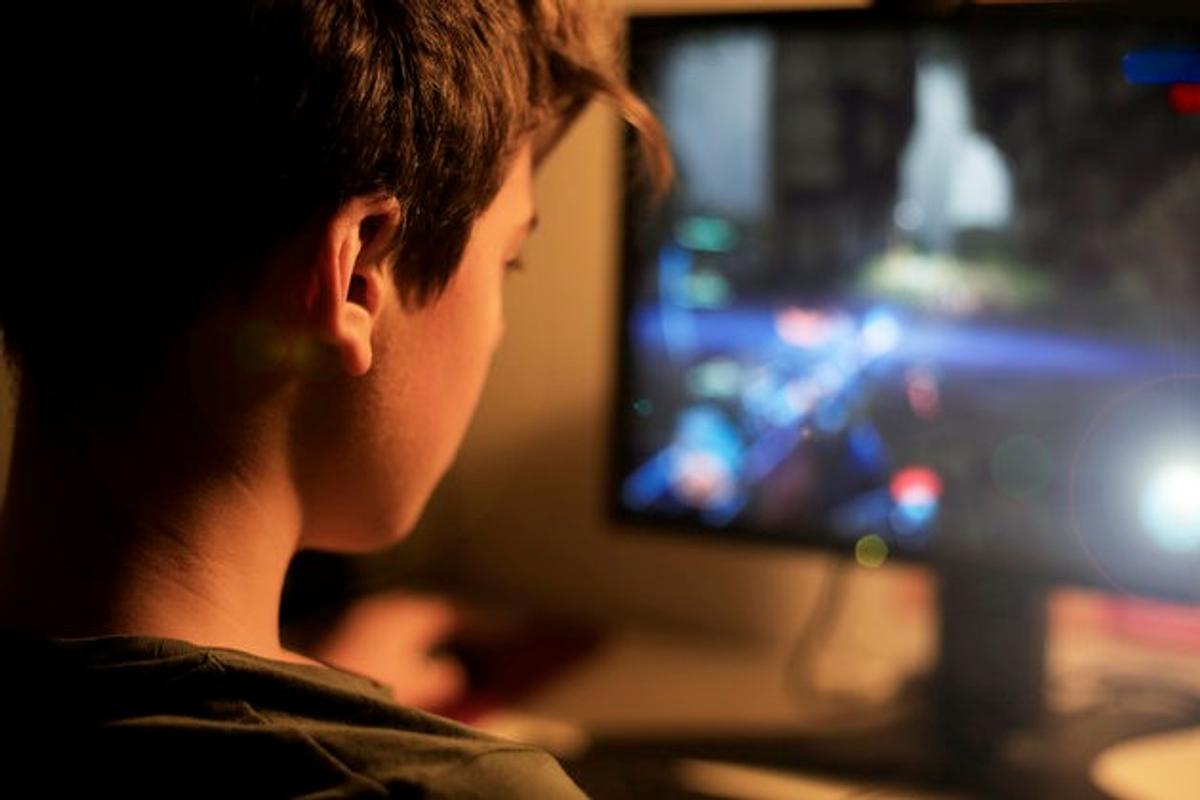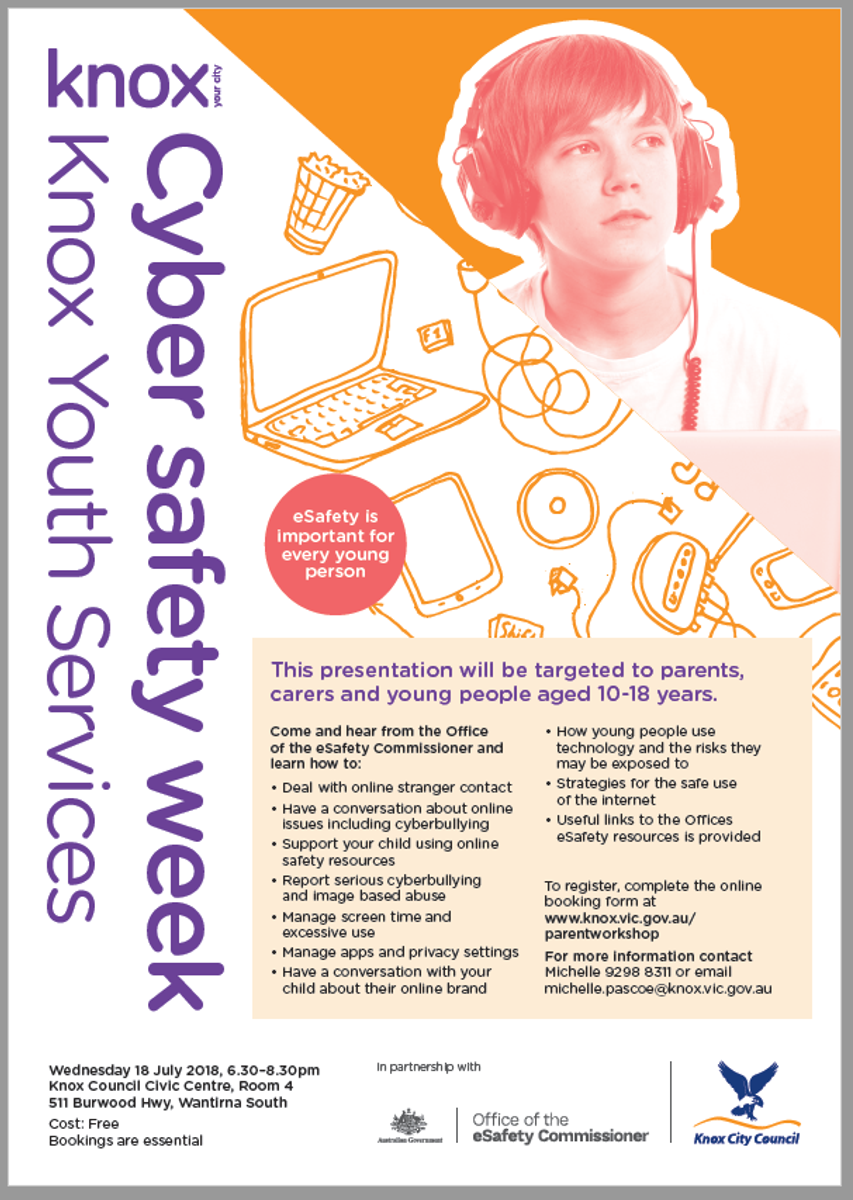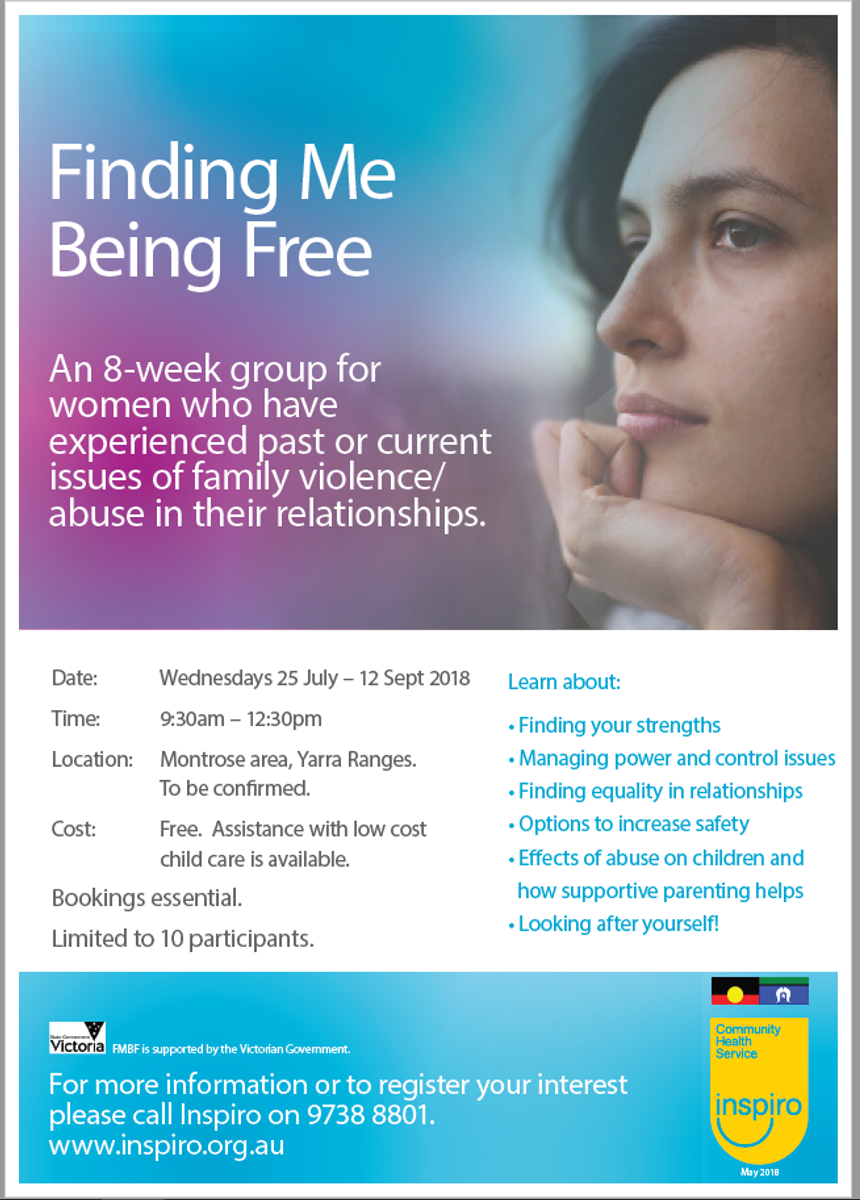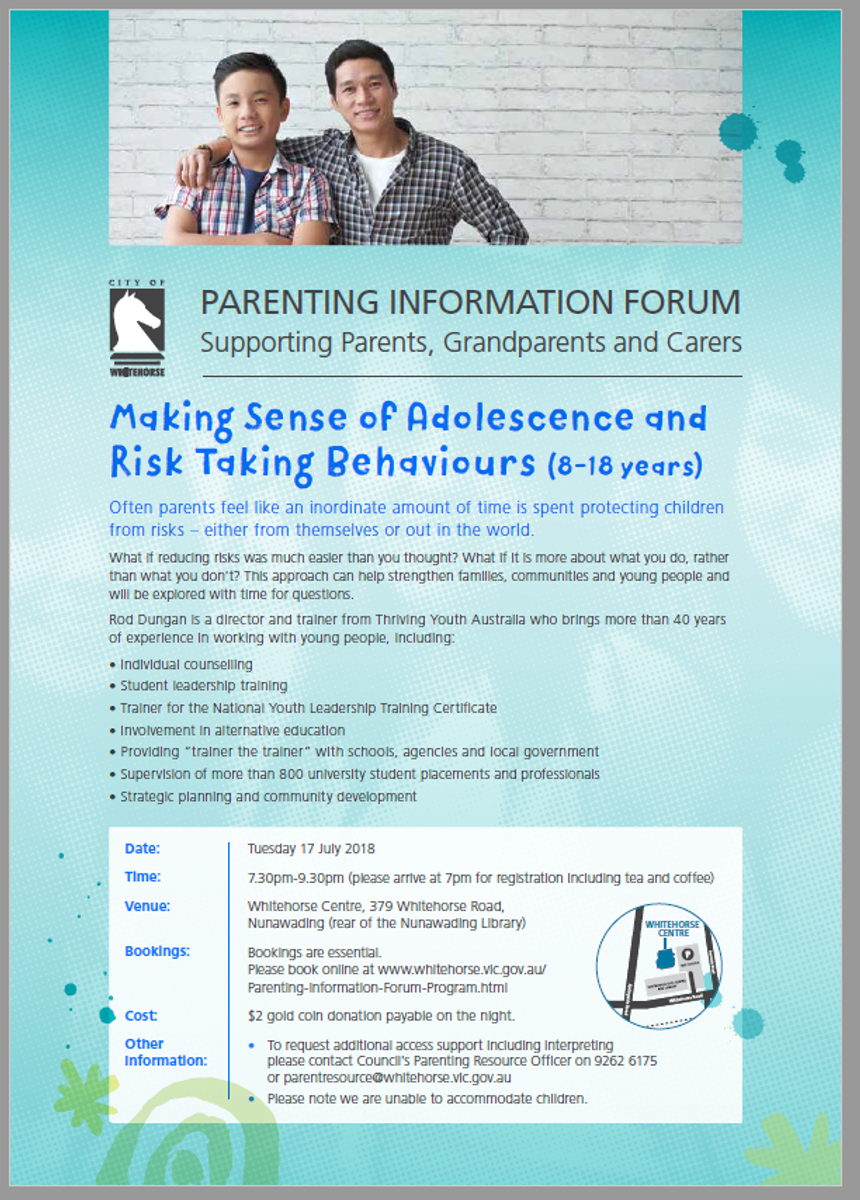Wellbeing & Student Engagement

Koonung parents complete Mental Health First Aid Training
We would like to thank parents of our Year 10 students for volunteering their time to complete the 14-hour Mental Health First Aid course, run here at the college on Monday June 18 and Tuesday June 19. This term, we have trained our year 10 cohort in teen-aid mental health first aid, we have had 22 of our staff compete the 14-hour Mental Health First Aid course, and now we have trained 10 of our parents in Mental Health First Aid. A big thank you to Melbourne University whom we have partnered with to deliver these very important courses within our college community.
Here is what one of our parents had to say about the program:
Thank you again for providing a group of parents with the opportunity to participate in the course, and also thank you to Michael Oaten for organising and coordinating the two day event.
It was a privilege to have had the opportunity to complete the Youth Mental Health First Aid course at Koonung Secondary College.
The skilfull teachings by the facilitator Nicole Turner and the generous sharing of personal experiences within their own families and friendship circles by some of the participants made the course content interesting and relatable.
We heard that despite the large number of adolescents affected by mental illness, only a small proportion of them seek professional help.
The course enabled us to identify signs of mental illness, which on the surface and in isolation could easily be misinterpreted as common teenage behaviour. We were taught skills to support people in a mental health crisis and how to speak and address the issue clearly and precisely. We were enabled to give guidance and advice on the variety of available professional support groups.
Given the high and increasing number of adolescents with mental illnesses, it seems a vital knowledge to have or gain within a school community.
Michael Oaten
Director of Learning: Learning Enhancement
How to tell if your child suffers from a gaming addiction
Gaming addiction has been recognised as a mental health condition for the first time by the World Health Organisation (WHO).
In its International Classification of Diseases (11th Edition), the organisation has included ‘gaming disorder’ under the subject ‘disorders due to addictive behaviour’. It is believed this move will make it possible for to seek help for the condition on the NHS.
With games like Fortnite and Minecraft only growing in popularity among teenagers, how can parents know if their child’s gaming has become a problem that needs addressing?
An increasing number of people are seeking help from UK Addiction and
Treatment Centres (UKAT) for gaming addiction.
What is gaming disorder?
The WHO describe the condition as being characterised by a pattern of persistent or recurrent gaming behaviour (‘digital gaming’ or ‘video-gaming’).
by: 1) impaired control over gaming (e.g., onset, frequency, intensity, duration, ;
According to the WHO a person who has gaming disorder will have difficulty controlling their gaming - ie. they give increasing priority to gaming so that it takes precedence over other interests and daily activities. They will also continue to devote time to playing “despite the occurrence of negative consequences” - such as impact on school work or friendships.
“For gaming disorder to be diagnosed, the behaviour pattern must be of sufficient severity to result in significant impairment in personal, family, social, educational, occupational or other important areas of functioning and would normally have been evident for at least 12 months,” the guidance states. Although, it adds that the required duration may be shortened if all diagnostic requirements are met and symptoms are severe.
UK Addiction and Treatment Centres (UKAT) have seen a 300% rise in the amount of admissions where gaming addiction is part of an adult’s reason for treatment since 2014.
How can you tell if your child is addicted to gaming?
A teen developing an interest in gaming is not cause for alarm, as studies suggest that gaming disorder affects only a small proportion of people who engage in digital- or video-gaming activities. But parents should be vigilant for signs that gaming is becoming a compulsion.
“Gaming can be a very positive experience but like most things when it comes to the online world it’s a matter of proportion,” explains Internet Mattersambassador and psychologist Dr Linda Papadopoulos. “The problem arises when children and teenagers start to neglect other areas of their lives in order to play online games, or when the only way they can relax is by playing games - as over time a child may start to turn to video games as a way of coping with difficult life issues.”
Dr Papadopoulos says signs your child is becoming dependant on gaming include:
1. They are talking about their game incessantly, they play for hours on end and get defensive or even angry and aggressive when made to stop.
2. Their daily needs like food and sleep are being disrupted. Physical symptoms might even arise from spending too much time online such as dry or red eyes, soreness in the fingers, back or neck or complaints of headaches.
3. They appear preoccupied, depressed or lonely, as some games can be quite isolating.
If you question the fact your teen is spending hours on end playing video games, you’re likely to be met with the response: “But everyone else is doing it”. So Dr Richard Grantham, technology addiction lead at Nightingale Hospital, also suggests talking to other parents to gauge if your child’s usage level is unusual.
“You want to be looking at your child’s friends and peers and seeing whether or not they are doing something similar,” he advises. “One of the things that can mark somebody who has a tendency to addiction, is that they will carry on when their friends or peers have stopped and they’re more likely to be playing with people they don’t know.”
Dr Graham adds that enthusiastic gamers may experience common symptoms of addiction, such as getting a “buzz” from playing and experiencing “withdrawal reactions”, such as feeling agitated, anxious, irritable or angry if they have to stop. But as long as they can control their behaviours, then it has not become gaming disorder.
What should you do if you suspect your child has gaming disorder?
If you have noticed your child developing the signs mentioned above, Dr Durrani, group psychiatrist at UKAT advises getting help immediately. “Early intervention in children could result in a healthy, moderated use of online games in the future, if the issue is tackled sooner rather than later,” he says.
But Dr Graham admits that knowing where to turn for help, can be difficult. “It has taken the NHS a very long time to recognise this may be an area that might affect somebody’s health and wellbeing,” he says. “So first of all, talk to other parents, to get that knowledge of what everyone else is doing, and perhaps your child’s school might be able to help.”
To seek professional help, start with your GP and ask if you can be referred to a specialist.
“Hopefully those services will be increasing on the NHS,” adds Dr Graham. “But specialist mental health services should be able to offer some help. Addiction is always complex and there may be all sorts of reasons for it in addition to the fact that these games are rewarding.”
Can you prevent a child developing gaming disorder?
Internet Matters offers the following advice to help prevent a child’s interest in gaming become a problem:
* Put parameters down when it comes to how long they’re allowed to play and discuss screen time limits together.
* Don’t allow kids to have tech in their rooms after lights out.* Ensure they have alternative activities whether they be sports or clubs that help them to engage with their peers offline.* If you still have concerns then seek the help of a professional counsellor.
Dr Graham also advises using the American Academy of Pediatrics ‘Family Media Plan’ to agree boundaries for your whole family to agree to in relation to gaming and time spent using technology.

